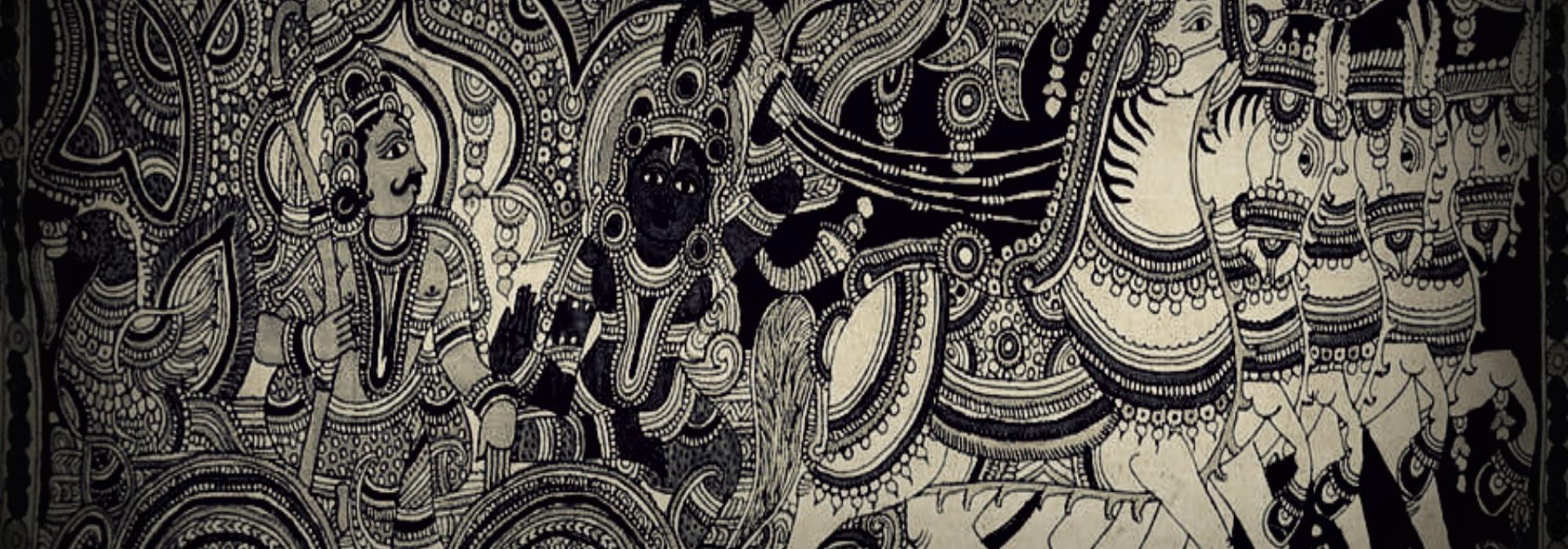Kosambi launches into a polemic against Krishna, considering him as a real person, forgetting that he himself had cast doubts on the existence of Krishna in the first place. Kosambi spews venom against the acharya of the Gita (emphasis is mine):
“...Krsna as he appears in the Mbh is singularly ill-suited to propound any really moral doctrine. The most venerable character of the epic, Bhisma, takes up the greatest of Mbh parvans (Santi) with preaching morality on three important questions: King-craft (raja-dharma), conduct in distress (apad-dharma), and emancipation (moksha-dharma). As regent, he had administered the kingdom to which he had freely surrendered his own right. He had shown irresistible prowess and incomparable knightly honour throughout a long life of unquestioned integrity... Bhisma seems eminently fitted to teach rectitude. But Krsna? At every single crisis of the war, his advice wins the day by the crookedest of means which could never have occurred to the others. To kill Bhisma, Sikhandin was used as a living shield against whom that perfect knight would not raise a weapon, because of doubtful sex. Drona was polished off while stunned by the deliberate false report of his son's death. Karna was shot down against all rules of chivalry when dismounted and unarmed; Duryodhana was bludgeoned to death after a foul mace blow that shattered his thigh... When taxed with these transgressions, Krsna replies bluntly at the end of the Salya-parvan that the man could not have been killed in any other way, that victory could never have been won otherwise.”
(M&R, pp.22-23)
Krishna lived and taught dharma, which encompasses morality but is far greater than it. Every word of advice that Krishna utters on the battlefield has been practiced by him in his own life, which is also possibly why he rattles out the highest truths in a casual battlefield conversation with a friend.
Kosambi is eager to lionize Bhishma, but what is Bhishma’s view on Krishna? At every step, he is deeply reverential towards Krishna. When Yudhisthira wishes to perform the rajasuya yajna, Bhishma says that it is Krishna who should be given the first respects. During the war, on the ninth day, when Krishna is upset with Bhishma (for using divine weapons to kill ordinary soldiers) and rushes to kill him, Bhishma says, “Please kill me. What greater boon can I have than to die at your hands?” After the war, during his long lectures to Yudhisthira about rajadharma, Bhishma says that Krishna is a living example for it. And Bhishma doesn’t have the tic of false modesty. He knows what he is capable of. Just to give an example – On the eve of the tenth day of battle, the Pandavas and Krishna visit Bhishma to ask him how he is to be conquered on the battlefield. After explaining the details, he says, “I do not see anyone in the three worlds who can kill me otherwise.” In light of this, Bhishma’s reverence for Krishna is meaningful. In fact, at one point Bhishma laments that he couldn’t listen to the wisdom of the Gita!
Further, Krishna followed the most practical credo: “Treat people the way they deserve to be treated.” If Krishna employed several seemingly unscrupulous methods to win the ‘war,’ the Kauravas had a huge share of misdeeds that were done outside of a war environment, in daily civilized life – be it the attempted assassination of Bhima, the ploy in the house of wax, or the fraudulent game of dice with the fourteen years of exile. At any rate, even if the Pandavas had decided not to fight the war, the Kauravas would have pursued them and tried to get them killed. The war had to be fought for the sake of self-preservation and it had to be won for the sake of preserving dharma.















































